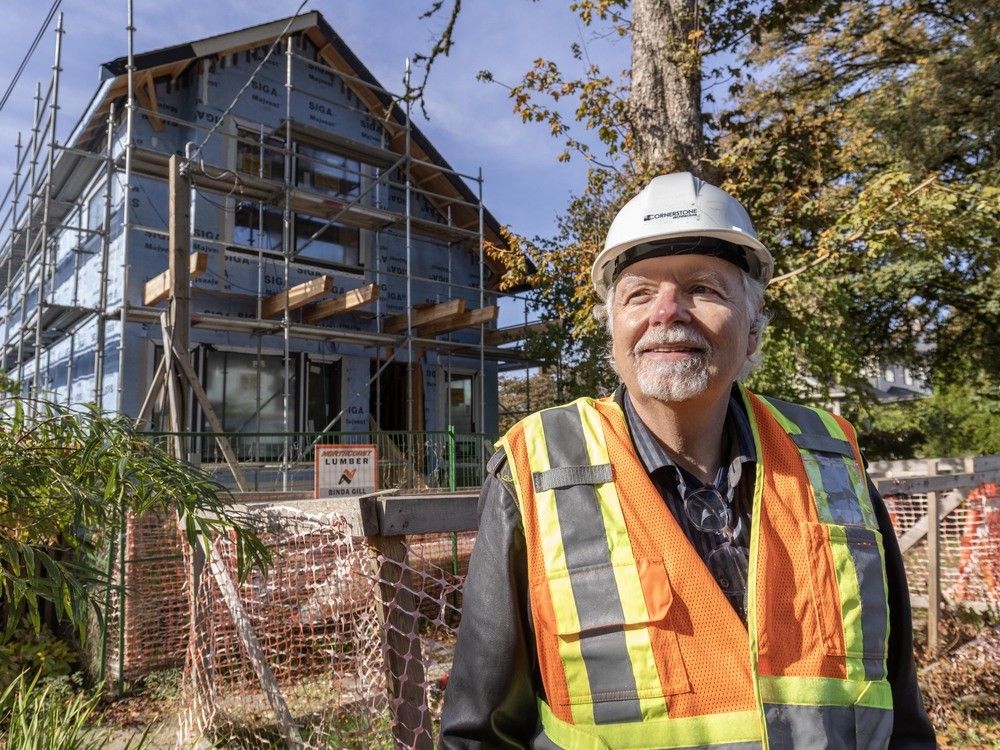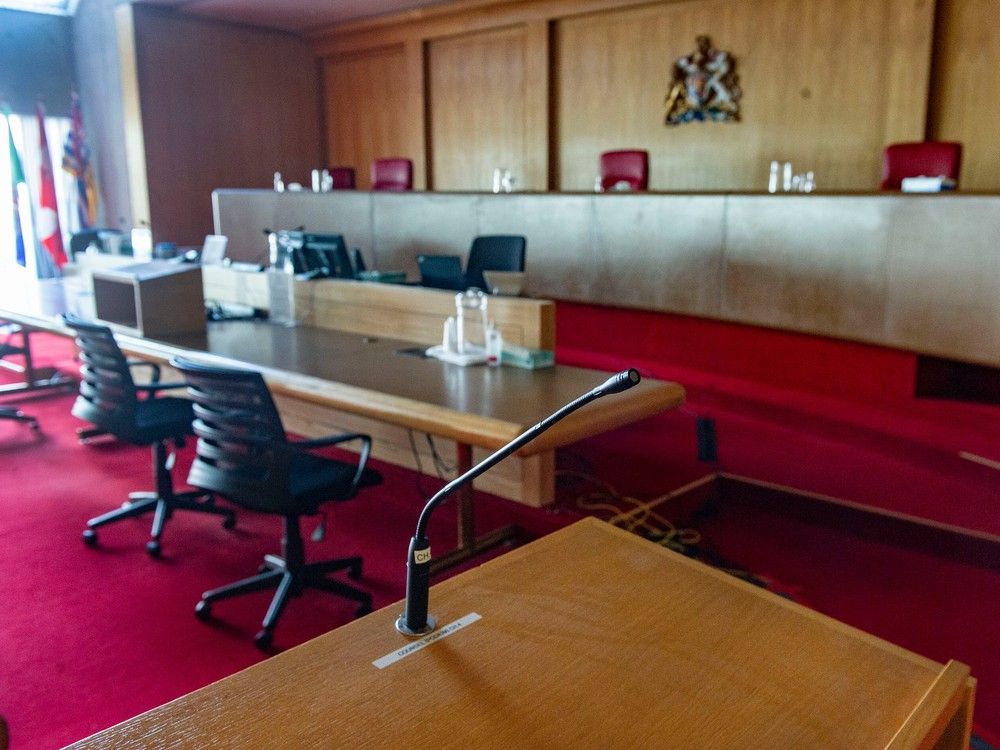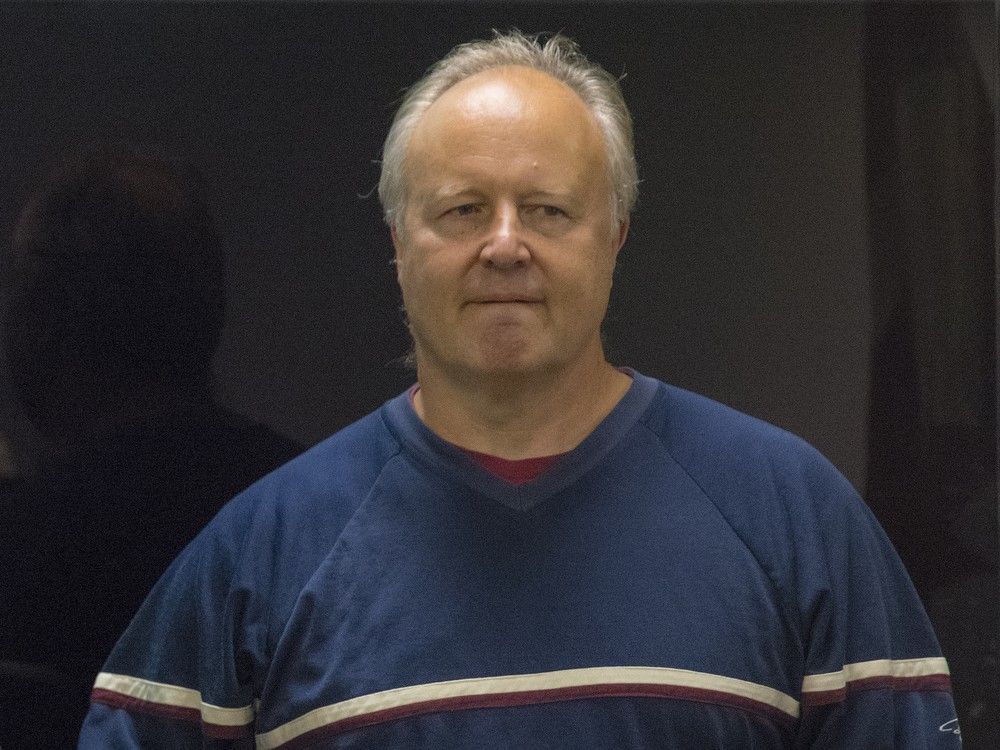For one thing, Canadian laws keep getting struck down based on made-up scenarios that never happened
Get the latest from Tristin Hopper straight to your inbox
Published Oct 15, 2024 • Last updated 7 minutes ago • 7 minute read

First Reading is a daily newsletter keeping you posted on the travails of Canadian politicos, all curated by the National Post’s own Tristin Hopper. To get an early version sent directly to your inbox, sign up here.
TOP STORY
Earlier this month, the legal world was thrown into a tizzy by comments coming to light in which Richard Wagner, chief justice of the Supreme Court, effectively said that precedent isn’t all that important in Canadian law anymore.
Advertisement 2
THIS CONTENT IS RESERVED FOR SUBSCRIBERS
Enjoy the latest local, national and international news.
- Exclusive articles by Conrad Black, Barbara Kay and others. Plus, special edition NP Platformed and First Reading newsletters and virtual events.
- Unlimited online access to National Post and 15 news sites with one account.
- National Post ePaper, an electronic replica of the print edition to view on any device, share and comment on.
- Daily puzzles including the New York Times Crossword.
- Support local journalism.
SUBSCRIBE FOR MORE ARTICLES
Enjoy the latest local, national and international news.
- Exclusive articles by Conrad Black, Barbara Kay and others. Plus, special edition NP Platformed and First Reading newsletters and virtual events.
- Unlimited online access to National Post and 15 news sites with one account.
- National Post ePaper, an electronic replica of the print edition to view on any device, share and comment on.
- Daily puzzles including the New York Times Crossword.
- Support local journalism.
REGISTER / SIGN IN TO UNLOCK MORE ARTICLES
Create an account or sign in to continue with your reading experience.
- Access articles from across Canada with one account.
- Share your thoughts and join the conversation in the comments.
- Enjoy additional articles per month.
- Get email updates from your favourite authors.
THIS ARTICLE IS FREE TO READ REGISTER TO UNLOCK.
Create an account or sign in to continue with your reading experience.
- Access articles from across Canada with one account
- Share your thoughts and join the conversation in the comments
- Enjoy additional articles per month
- Get email updates from your favourite authors
Article content
“No one today will refer to a decision from 1892 to support his claim,” said Wagner. “Sometimes a decision from five years ago is an old decision, in commercial and civil matters.”
Wagner said this in relation to an ongoing controversy in which the Supreme Court is refusing to translate its pre-1970 decisions into French. Wagner’s argument was that Francophone lawyers didn’t need the translations, since the pre-1970 world should be irrelevant to them.
Canada’s top court was founded in 1875, but according to Wagner, any decision it came to during those first 95 years is merely “legal cultural heritage” that has no bearing on modern law.
In the words of legal scholar Stéphane Sérafin, the comments hint at an “undisciplined approach to judicial responsibility.”
“He seems to imply that the judges on his bench are empowered to make and remake the law as they see fit,” wrote Sérafin in an op-ed for the National Post.
It’s not a new concern. The last decade in particular has yielded a slough of Supreme Court decisions that come to conclusions which aren’t tremendously informed by written law, established precedent, or even the basic facts of the case before them.
Advertisement 3
Article content
If you were going to argue that the Supreme Court of Canada is just people making up new laws as they go along, below is a cursory list of the most brazen examples of the trait.
Recommended from Editorial
-

The Canadian farmboy ready to unleash nuclear hell during the Cold War
-

Samidoun doubles down, says 'death to Canada' an accurate summation of its goals
Saying you can decide laws based on “unwritten principles”
The 2021 case Toronto v. Ontario was about whether Ontario Premier Doug Ford had the power to shrink the size of Toronto City Council. By a 5-4 decision, the Supreme Court ultimately ruled that he could.
The case against Ford had been that while his decision didn’t really violate any laws, per se, it violated the “unwritten constitutional principle” of democracy. The term has been used before, and it basically refers to consistent themes that show up in common law. Democracy is indeed one of the principles, since Canadian court decisions usually take the more democratic course.
The majority in Toronto v. Ontario ruled that it wasn’t appropriate to strike down legislation based on an unwritten understanding of the law.
By signing up you consent to receive the above newsletter from Postmedia Network Inc.
Article content
Advertisement 4
Article content
Nevertheless, four of the nine justices were totally fine with the argument. “Unwritten constitutional principles may be used to invalidate legislation,” they wrote.
Toronto v. Ontario was three years ago, and in the meantime the court has lost Russell Brown, one of the five justices in the majority. So the next time the SCC hears a plea for “unwritten principles” to take precedent over written law, it may well go another way.
Giving “benediction” to a new Charter right (that’s seriously what they said)
When Ontario Premier Doug Ford passed 2022 legislation to order the province’s striking educational assistants back to work, media reports soon dubbed it a violation of the “Charter right to strike.” Ford himself seemed to agree, since he invoked the Notwithstanding Clause; a rarely used constitutional provision that allows governments to pass laws that knowingly violate Charter rights.
But the “Charter right to strike” was only seven years old, and had been brought into being by a Supreme Court decision that was pretty open about the fact that justices just seemed to think this was a new right people should have.
Advertisement 5
Article content
In 1987, the Supreme Court had been specifically asked to enshrine a Charter right to strike on the grounds that “freedom of association” included a collective right to strike. But in that case a majority had ruled that “it is clear that freedom of association does not guarantee the right to strike.”
A mere 28 years later, the exact same question was put to the Supreme Court, and it yielded the exact opposite answer. In a majority decision, Justice Rosalie Abella wrote “it seems to me to be the time to give this conclusion constitutional benediction.”
Striking down legislation based on made-up things that never happened
The 2015 decision R. v. Nur concerned a 19-year-old Toronto man (Hussein Nur) who was facing a three-year mandatory minimum prison sentence after getting caught with an illegal gun. The man’s lawyers were asking the Court to declare that mandatory minimum sentences for gun crimes were a violation of the Charter guarantee against “cruel and unusual punishment.”
The justices determined that, actually, it was pretty reasonable to lock Nur up for three years; he’d been actively trying to shoot a rival at the time he was caught.
Advertisement 6
Article content
However, the justices then devised an elaborate hypothetical scenario in which it wouldn’t be reasonable; if Nur had been a legal gun owner who’d merely forgotten to renew his licence.
Nothing like that had ever happened before, but it was on the basis of this “reasonable hypothetical” that they did end up striking down the law.
The dissent was pretty scathing. “The hypothetical scenario advanced by the majority stretches the bounds of credulity,” it read.
And R v. Nur was not the first Supreme Court case that was decided based on a hypothetical scenario rather than an actual thing that had happened. They did it again in 2023’s R. v. Hills; an Alberta man was facing a four-year prison sentence for randomly firing a hunting rifle at strangers. The court imagined that the accused had instead fired at strangers with a low-powered air rifle – and on this basis determined that the sentence was disproportionate.
A dissenting justice accuses his colleagues of twisting the law to shut out a new member
In 2014, the SCC effectively rejected their newest member. Ever since 1949, three of the nine justices on the Supreme Court have needed to come from Quebec. So when a Quebec seat opened up, Prime Minister Stephen Harper picked Federal Court judge Marc Nadon – a jurist with a history of conservative decisions – to fill it.
Advertisement 7
Article content
Quebec appointees needed to come “from among the advocates of that province.” Although Nadon wasn’t an active member of the Quebec bar, he had spent years as a Montreal lawyer.
But in a 6-1 reference decision, the Supreme Court ruled that wasn’t good enough – and rejected Nadon’s appointment. This prompted the one dissenting justice, Michael Moldaver, to say that their reasoning made “no practical sense” – and to hint that this all just seemed to be an elaborate attempt to shut out a new member they didn’t want.
“It is not the function of this Court to comment on the merits of an appointment or the selection process that led to it. Those are political matters that belong to the executive branch of government. They form no part of our mandate,” he wrote.
Deciding that Canadians would lose faith in their courts if mass murderers weren’t given bail
When Alexandre Bissonnette was convicted for the mass murder of six worshippers at a Quebec City mosque, he became one of only a small handful of Canadian criminals sentenced to die in prison. For decades, Canadian murder sentences could only be served “concurrently”; no matter how many people an offender killed, the absolutely maximum prison sentence they could serve before applying for parole was 25 years.
Advertisement 8
Article content
But under a Conservative bill that had been sought for years by victims’ rights groups, this was altered so that mass-murderers would serve their 25 years one after the other. Thus, Bissonnette wouldn’t be able to apply for parole for 150 years.
The Supreme Court struck down the law in 2022 on the grounds that permanently jailing mass murderers constituted “cruel and unusual punishment.”
The decision mostly cites foreign laws in coming to that conclusion, and ultimately decides that Bissonnette’s 150-year sentence served only to “bring the administration of justice into disrepute and undermine public confidence in the rationality and fairness of the criminal justice system.” And so, the law was struck down and Bissonnette (and all the other mass murderers convicted under the law), are now free to apply for parole after 25 years.
On the subject of “public confidence” in the fairness of the justice system, surveys do indeed show that a majority of Canadians would not have given Bissonnette a 150-year sentence. They would have killed him.
Get all of these insights and more into your inbox by signing up for the First Reading newsletter here.
Article content
Get the latest from Tristin Hopper straight to your inbox
.png)
 4 days ago
15
4 days ago
15




































 Bengali (BD) ·
Bengali (BD) ·  English (US) ·
English (US) ·